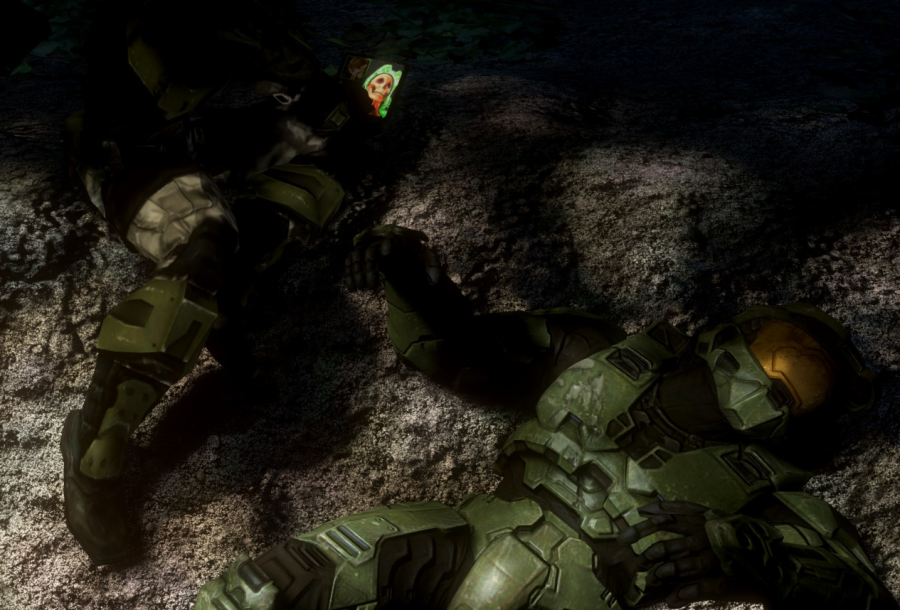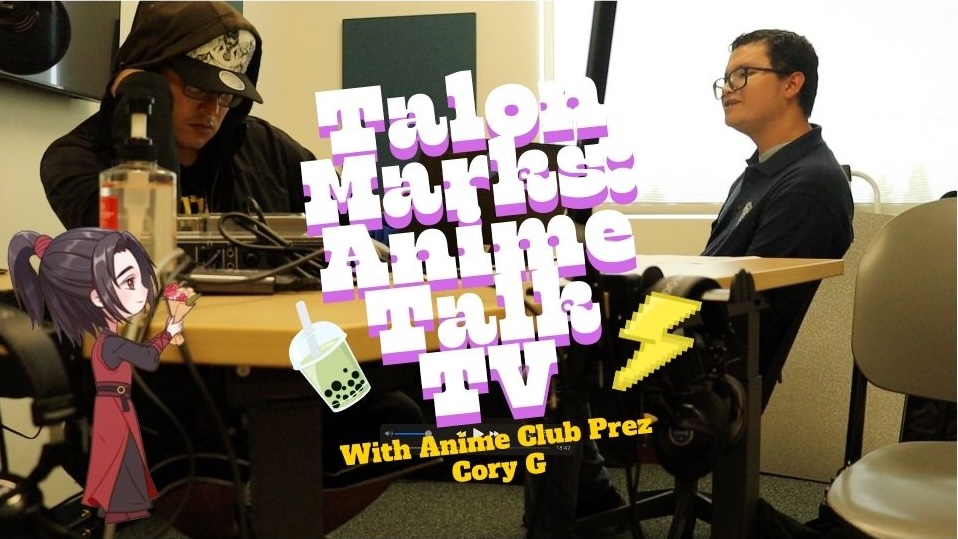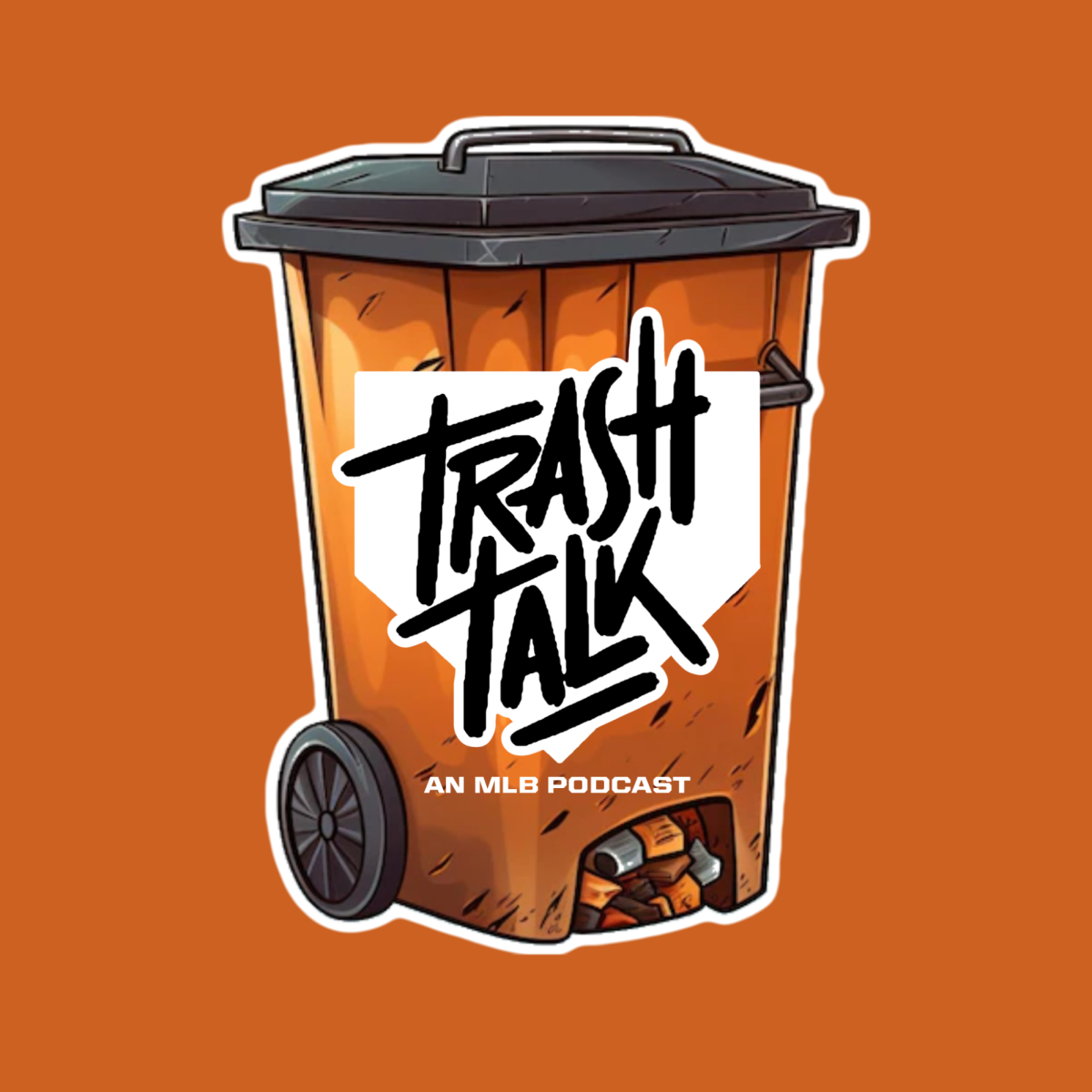Matthew: Hello, I’m Matthew Espinosa from Cerritos College’s Talon Marks newspaper and I’m here today with Tanner Thurston from Two Rivers High School, for our third Sidechat podcast session. For this one, we’ll be talking about Halo’s Spartans again, except we’ll focus on these super soldiers’ alleged godhood.
Tanner: Did you by chance get this from the talk on social media where, people are pitting Master Chief against the Doom Slayer?
Matthew: Yes, and if I’m going to be honest, it’s annoying seeing Tiktokers overestimate the abilities of someone who is basically a highly trained soldier with, uh, enhanced human abilities.
This session isn’t only, uh, my own way of unnecessarily taking it to the next level, but also an opportunity to talk about the finer details of a Spartan’s power fantasy-like gameplay.
Tanner: Ah, I mean, Tiktokers in general are always annoying so I get what you mean, like I don’t understand how a literal god who killed the equivalent of Satan—the Creator or something, who the hell knows—could lose to Master Chief.
Matthew: Thank you; it would seem that the pandemic has knocked a few cogs loose in some of these Tiktokers.
Tanner: So I’ve played, like, most of the games, I haven’t read all of the books so maybe you can, like, fill in the role of the books while I do the series’ gameplay.
Matthew: Sounds fine to me.
Tanner: Okay, just to clarify, are we going to be talking about why the Spartans aren’t all that?
Matthew: Uh, sort of. I’d also like to discuss some of the deeper meanings behind them as a part of Halo’s story.
Tanner: Alright, well, I’ll follow your lead on that last part so I don’t start it without fully knowing.
Matthew: Okay.
Tanner: Uhh, so I’ll start off saying that, uh, while the Spartans are good at talking—taking on multiple enemies, it’s usually in an environment that, more or less, works in their favor when screwing over a lot of dudes.
Matthew: There is actually, like, one example that I remember from Ghosts of Onyx where Blue Team—that is, the team that Master Chief is a part of—takes up a position on, uh, a kind of Forerunner pyramid that allows them to shoot any incoming Covenant enemies coming through the portals that surround it without being attacked—no, shot directly at.
Tanner: I mean, yeah, it’s not like they can dominate every battlefield, which is what I kinda figure what people on social media mean: which is being able to take on any threat regardless of where they are.
Matthew: Yeah.
Tanner: I mean, one example I can think of where a Spartan was lucky enough to have a—let’s a—let’s call it a favorable environment— in the first Halo game, on the Pillar of Autumn where the close quarters meant you had a lot of cover and it was harder for the unsuspecting Grunt, who was probably sucking on Food Nipple to dodge a gunfire from your incredibly large pistol.
Matthew: There’s also the issue that many people forget that Master Chief was chosen by Cortana not because he was the fastest or strongest or most accurate. It was because he’s incredibly lucky.
Tanner: I mean,yeah; it’s not like an everyday thing for people—even soldiers— to outrun a chain explosion in five minutes—in a service tunnel that’s somehow longer than the actual ship you’re driving through—while humanity’s deadliest enemies and the universe’s worst nightmare are chasing after you.
Matthew: Heh, it also doesn’t, hurt that Spartans wear armor with built-in shielding.
Tanner: Oh, yeah. I’m sure most of the combat you engage in isn’t usually one on one and the situations you’re put in as a Spartan, realistically speaking, don’t give a lot of time to recon the area ahead, uh, and bring the right equipment so having an extra layer of protection over the titanium stuff you’re already wearing is pretty handy, especially when you’re dealing with weapons that output radiation and enough heat to inflict third-degree burns.
Matthew: Except for the mission Tip of the Spear where you sort of scout the—out the Covenant position you’re attacking.
Tanner: hey, just that they’re only aware of the position itself—and that it’d be really cool to charge it with a bunch of Warthogs.
Matthew: Yes. On a related note, the Spartan’s didn’t always have, uh, built-in shielding—at least, according to the lore—which makes the luck factor more obvious in their effectiveness as soldiers. That isn’t to say it’s all luck; as you mentioned before, they’re fully capable.
They make an effort to gain control of the situation as quickly as possible, but that doesn’t, uh, remove the fact that war can—is unpredictable and anything can and will happen during combat.
Tanner: I mean, you can’t have a power fantasy and realism in the same game; I feel that would just ruin the game.
Matthew: Uh, that being said, I would like to use this time to transition to the other part of our discussion; the deeper meaning behind the Spartans.
Tanner: Go ahead, I’ll come up with something, for sure.
Matthew: So what I—what I feel like might mean for this luck factor in this power fantasy is that Master Chief is predestined for great change. It’s not luck that the Spartans are at the forefront of these incredible moments in the Covenant-Human War; they were trained to be the turning tide in the fight and to that effect, they have done exactly that.
Tanner: I mean, I actually believe the reason that this luck is obvious at times is because during a fight, Spartans recognize the opportunities that reveal themselves since they were trained to be the best and use them to their fullest effect.
Matthew: You’re right and so when these Spartans die it’s that these illusions of godhood—of invincibility—are broken and when players realize you’re just as human as the Marine who died two feet away from you.
Tanner: I can also, uh, see what you mean by deeper meaning; it’s kind of poetic that someone that people think is a god can just die.
Matthew: ONI in Halo lore actually made it a rule for the UNSC to list all Spartans as Missing in Action whenever they were killed during battle.
Tanner: I mean, if it wasn’t for Halo 4’s opening scene, I would almost say that’s inspiring.
Matthew: Oh, yeah. To me, it’s cruel that ONI denies them liberty even in death;
this kind of thing was especially evident in Ghosts of Onyx too where, like, the 300 Spartans of Beta and Alpha Company were slaughtered in the open by the Covenant for no other reason than to buy humanity some time to think about the, uh, next course of action.
Tanner: Oh, that’s news to me.
Matthew: Not a lot of people read up on Halo lore and when you do, it’s depressing to read about one of your favorite generation of super soldiers being blown to bits like cannon fodder.
Tanner: I mean, that’s why the games place you in favorable environments, I suppose.
Wouldn’t help to let your players see this indestructible thing—this, uh, Spartan—you play as die miserably.
Even Halo: Reach went as far as to give you an honorable death; you actually did something to help humanity.
Matthew: Beta and Alpha Company, on the other hand, were nothing more than warm bodies to throw at an increasingly unsolvable problem.
Tanner: So back to the poetic part of this whole thing.
Matthew: Yeah?
Tanner: I would like to say that their deaths—the Spartans, to clarify—go to show that war isn’t fun and that you living is really up to chance. The entirety of Halo: Reach is one of the more popular Halo games that show us that Spartans are still human.
Matthew: Whereas the Doom Slayer is immortal.
Tanner: Yeah, and like, these are still humans underneath all that armor; still children, almost, that grow up to be these emotionless sociopaths.
Matthew: It’s almost like you can’t win against an all-powerful being just because you’re well-trained and have no sense of empathy. No offense to, uh, the Master Chief, of course.
I will always love his character and the lore surrounding him.
Tanner: I think that, in comparison, Halo has a good cast of characters and DOOM has good gameplay, although you could say that they’ve tried making, uh, some lore.
Matthew: Halo absolutely knocks DOOM out of the ballpark in terms of lore, but it definitely does not knock down the Doom Slayer when you talk about, uh, combat capability, of course.
Tanner: Both are good games, and in reality, this whole who’s more powerful than who thing on social media is just kinda petty.
Matthew: Both games set out with completely different goals and accomplish them beautifully.
Tanner: Oh yeah, I mean, although if I’m gonna be honest, there’s more replayability to DOOM, which is why I like it more as a game.
Matthew: To a degree, there’s some replayability in Halo, but, uh, fair enough.
Matthew: Anyway I think that about wraps it up for this session of Sidechat.
Matthew: Thank you for joining me, Tanner.
Tanner: Thank you for having me, see you later.












